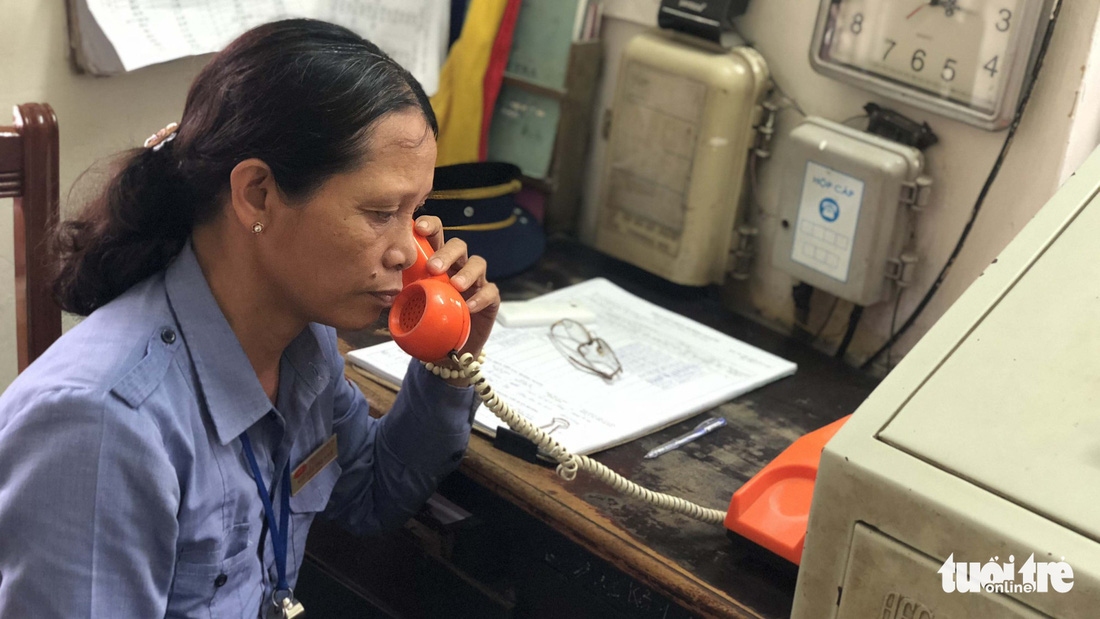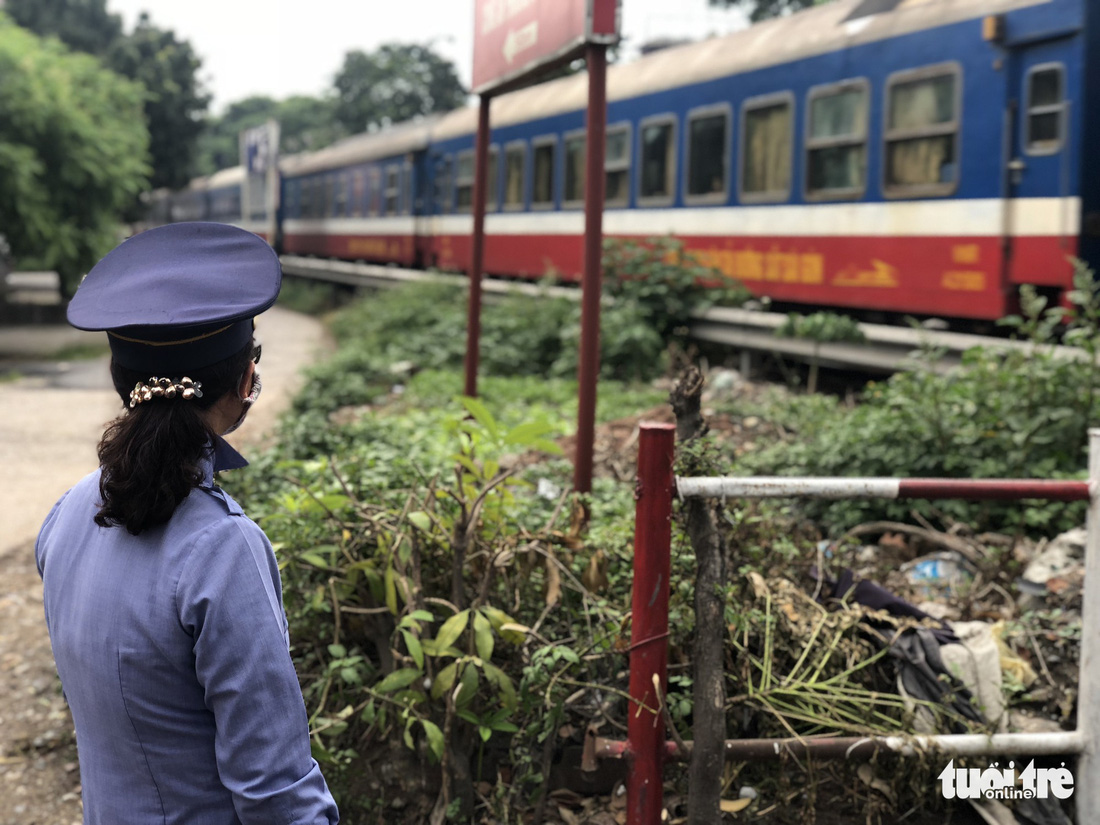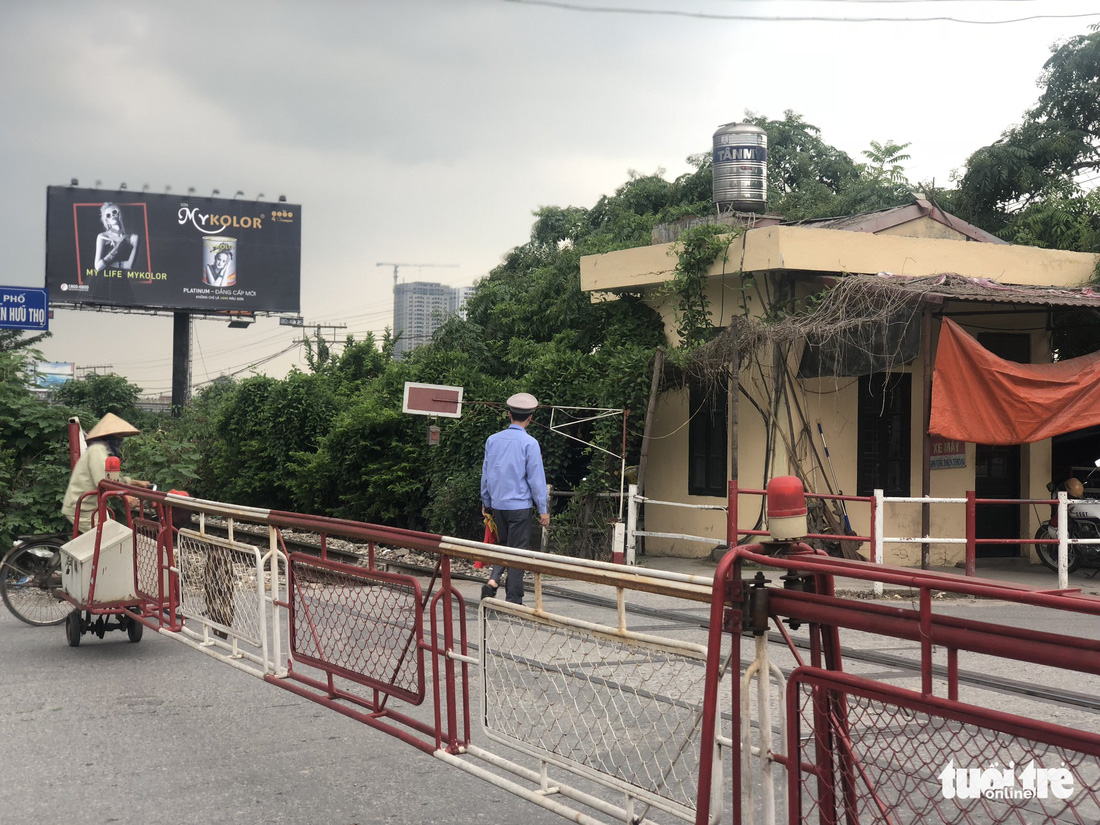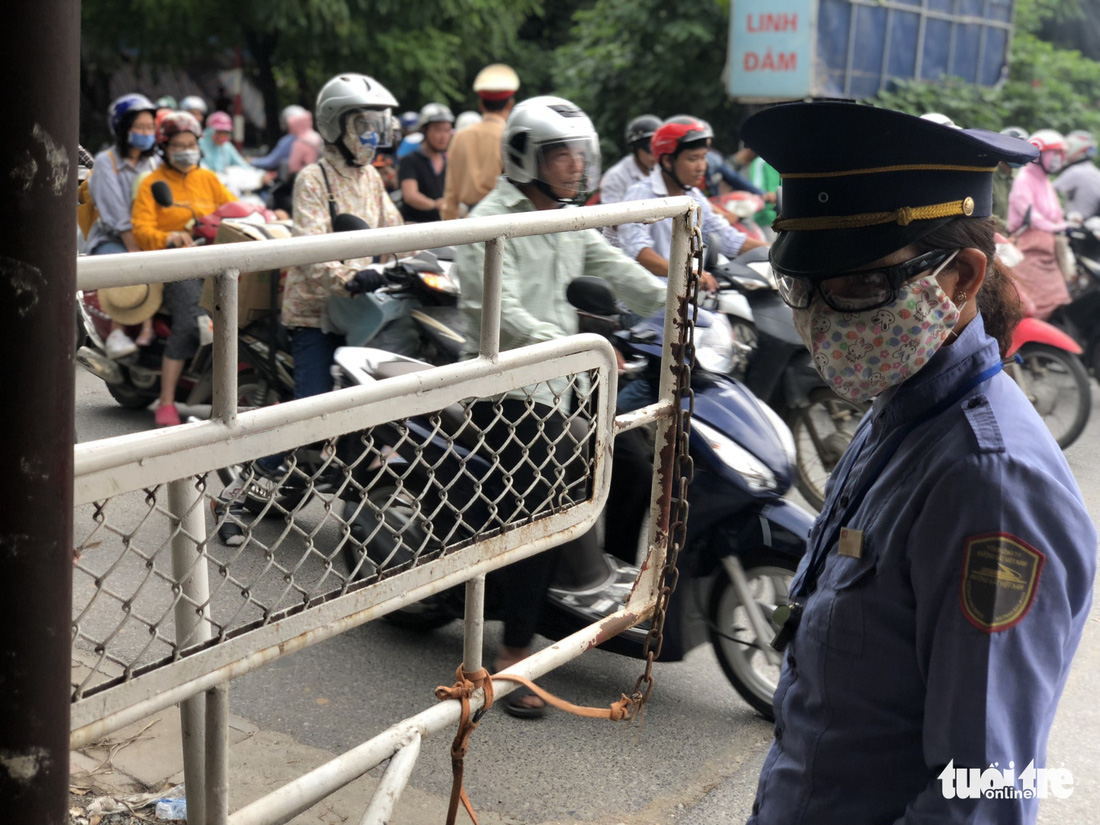What level crossing attendants do is usually branded as a boring job whose main responsibility is to lower and lift the barrier to separate vehicles from oncoming trains at intersections where a railway line crosses a road.
The job is in fact an arduous one, and its poor salary can never justify the amount of stress the attendants have to face on a daily basis.
Vietnam’s railway was rocked by a series of four accidents in four straight days, from May 24 to 27.
Two level crossing attendants were suspended from work for their role in the first case, when a train crashed into a truck trying to cross the tracks in the north-central province of Thanh Hoa.
In the wake of these accidents, Tuoi Tre (Youth) newspaper met some level crossing attendants and got to know the lesser-known darker side of their work.
Endless tension
Fifty-year-old Nguyen Thi Nam has been working at different level crossings in Hanoi for the last 20 years.
And yet, the veteran employee only makes a meager VND4 million (US$176) a month.
Nam and her colleagues would stay in their booth, located next to the tracks, ready to adjust the barrier when a train comes.
The dilapidated booth has no air conditioner, and is equipped with only a bland ceiling fan. But during peak time, it has to house at least five on-duty employees.
There is not even enough space for them to get a short rest, which is in fact a luxury for Nam and her coworkers, who have to take on 12-hour shifts.
 |
| Nguyen Thi Nam listens to train information via telephone at her level crossing booth in Hanoi. Photo: Tuoi Tre |
What your correspondent learned after observing Nam at work for three hours is that the job does not just involve pulling up and lowering down the barrier as many may expect it to be.
Rather, it is grueling to the core. Nam has to keep on rummaging through the check-list, pinpointing at which hour what train will come through, while anticipating calls from the control center regarding the arrival of a train.
“It is like we are on the battlefield, ready to mobilize anytime,” Nam said.
According to Nam, there are many regulations that level crossing attendants have to adhere to, as even the slightest mistake could lead to fatal consequences.
Among them are maintaining a mandatory two-hour sleep before each shift, restraining from consuming alcohol, not leaving the post under any circumstances, and carrying out assigned tasks under any weather conditions.
But the most challenging task is to signal an approaching train to stop by waving the red flag while running toward it, Nam said.
“It’s dangerous but it’s how we make a living,” she added.
 |
| An attendant looks as a train passses a level crossing in Hanoi. Photo: Tuoi Tre |
Unhealthy job
For Hoang Thi Binh, who works at a level crossing in Ho Chi Minh City, the menace comes from road users.
Even though the barriers have been lowered, some vehicles would try to sift through the gap, while others blatantly pull them up to pass through, ignoring warnings from the railway attendants on duty.
“I even get insulted and sneered simply by doing my duty," Do Thi Trang, another level crossing attendant, exclaimed.
Binh has taken up the job for four years, but she is pondering over whether to stay with it or not.
“Each shift lasts 12 hours, but if there is personnel shortage, I’ll have to take another shift immediately after the first one,” Binh said with a sigh.
She said 25 to 30 turns of train pass her post on a daily basis, and even when the weather is bad, “you still have to go out to ensure safety."
"There is no excuse," she added.
 |
| A woman tries to cross the tracks even though the barrier has been in place. Photo: Tuoi Tre |
It comes as no surprise that Binh often finds herself deprived of sleep.
She has to resort to nicotine, and strong stimulants found in tea and coffee, to keep her awake through the night.
This explains why most of the level crossing attendants tend to develop hazardous symptoms and habits, as well as having their physical appearance affected.
A train accident is the worst nightmare of level crossing attendants, no matter whether it happens at their locations or not.
“Whenever I hear about a train accident, my heart throbs in agony,” Nam said.
Those accidents may affect the train driver, assistant driver, and other employees, as well as level crossing attendants.
“They could be my friends, my relatives, and my colleagues,” Nam said.
“It’s hard to see them perish away, or jailed [for their faults].”
Like us on Facebook or follow us on Twitter to get the latest news about Vietnam!


















































